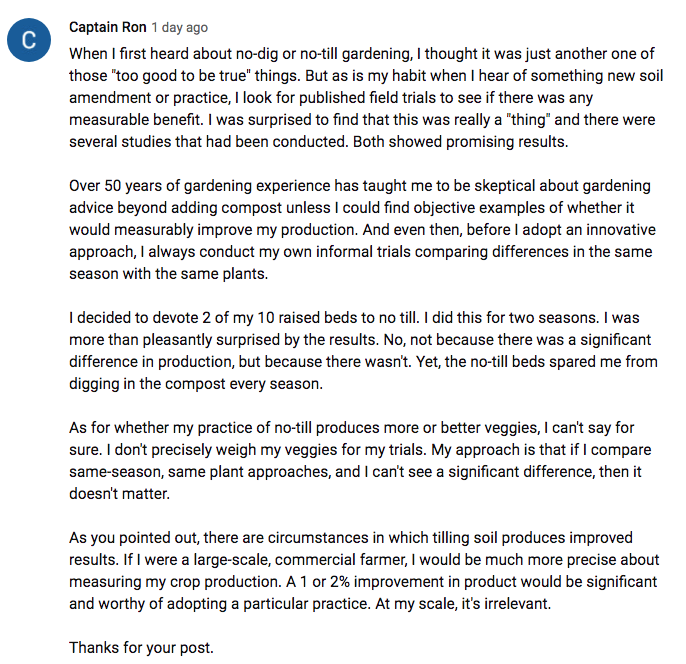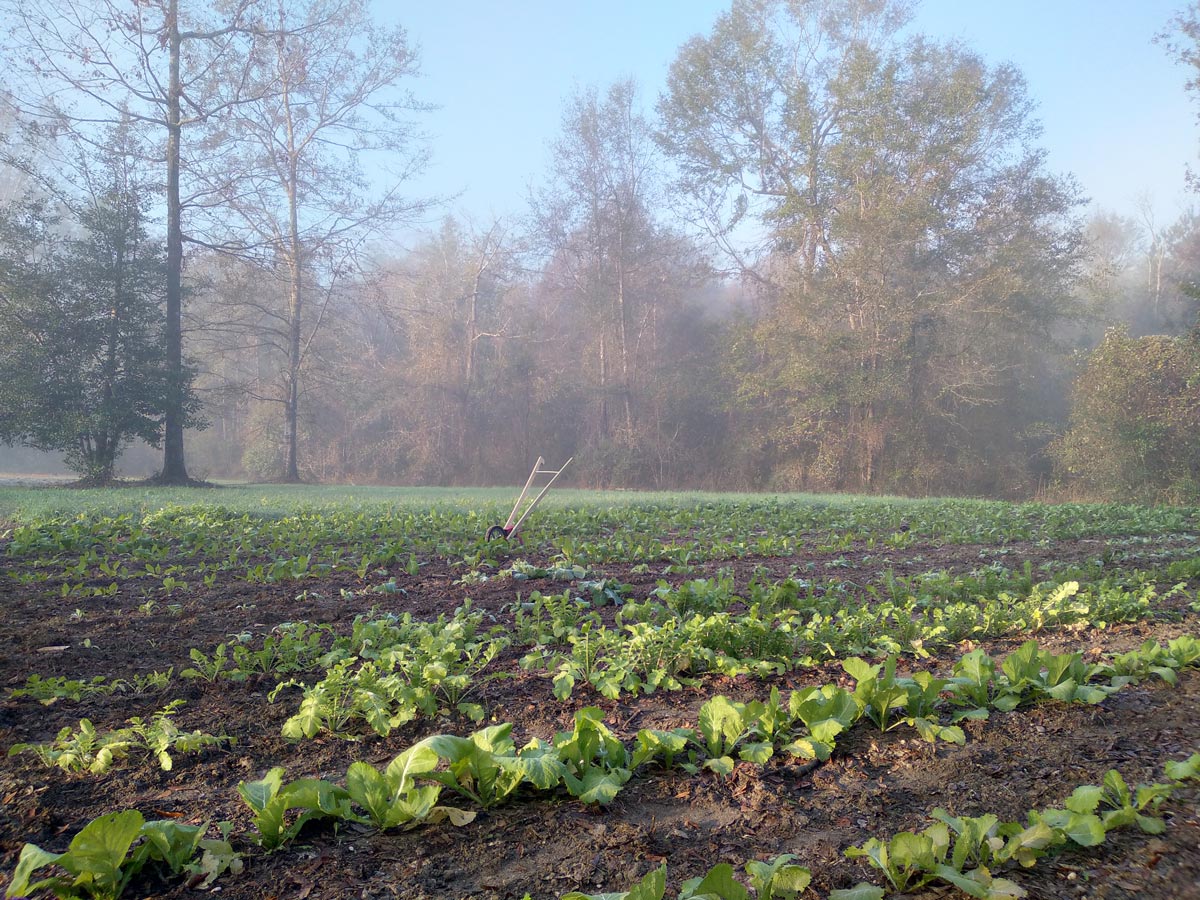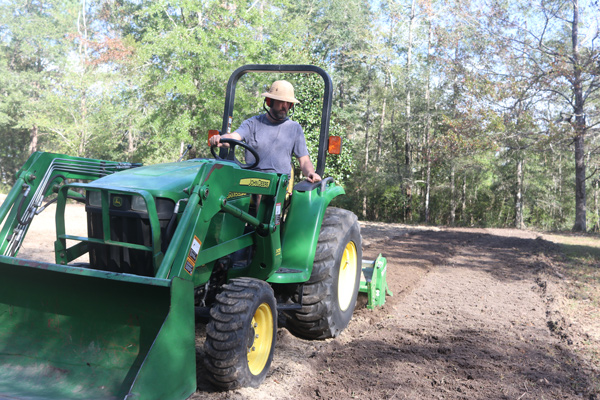On my recent video of Noah Sanders demonstrating till vs. no-till soil, Captain Ron comments:
When I first heard about no-dig or no-till gardening, I thought it was just another one of those “too good to be true” things. But as is my habit when I hear of something new soil amendment or practice, I look for published field trials to see if there was any measurable benefit. I was surprised to find that this was really a “thing” and there were several studies that had been conducted. Both showed promising results.
Over 50 years of gardening experience has taught me to be skeptical about gardening advice beyond adding compost unless I could find objective examples of whether it would measurably improve my production. And even then, before I adopt an innovative approach, I always conduct my own informal trials comparing differences in the same season with the same plants. I decided to devote 2 of my 10 raised beds to no till.
I did this for two seasons. I was more than pleasantly surprised by the results. No, not because there was a significant difference in production, but because there wasn’t. Yet, the no-till beds spared me from digging in the compost every season.
As for whether my practice of no-till produces more or better veggies, I can’t say for sure. I don’t precisely weigh my veggies for my trials. My approach is that if I compare same-season, same plant approaches, and I can’t see a significant difference, then it doesn’t matter. As you pointed out, there are circumstances in which tilling soil produces improved results. If I were a large-scale, commercial farmer, I would be much more precise about measuring my crop production. A 1 or 2% improvement in product would be significant and worthy of adopting a particular practice. At my scale, it’s irrelevant. Thanks for your post.

Here’s the video:
My Thoughts on Till vs. No-till
I have had good results with “lasagna garden” style beds and with long-term beds in my Grocery Row Garden systems. Both are no-till methods.
On the other hand, I have also had good luck with tilling up an area and making single-row gardens, the good old-fashioned way. We’d weed with a garden hoe or a wheel hoe and kept the soil bare all season, then we’d usually scatter a cover crop over it, then, next season, till that in and start again.

The important thing is to be growing food, and not destroying the land you’ve been given.
I do think there’s a place for tillage, though it can be abused. And there is a cultishness to no-till that is disturbing. If I had a buck for every time someone talked to me about Elaine Ingham, I’d be a rich man. Personally, I am not a fan of her, though I agree with a good bit of what she says.
People often aren’t smart enough to take what they can use and discard the rest. Instead, they divide into hostile camps and proclaim their way is the only way and all others are infidels that must be composted.
I’m pleased when I see a productive no-till garden and pleased when I see a productive tilled garden.
Grow food. Leave the factory farming system.
And by all means, experiment in your own backyard like Captain Ron. A season of testing various methods in your garden is almost certainly more valuable than listening to a thousand hours of podcasts.
Go thee out and DO!


3 comments
Such a good article! To till or not to till! Just grow a garden how you put it in the ground is up to you!
Same! I actually do a combination of both.
I appreciate this post. Every year brings new experiments in the garden. I don’t expect we’ll ever get it perfected, but it keeps it fun along the way.
Comments are closed.